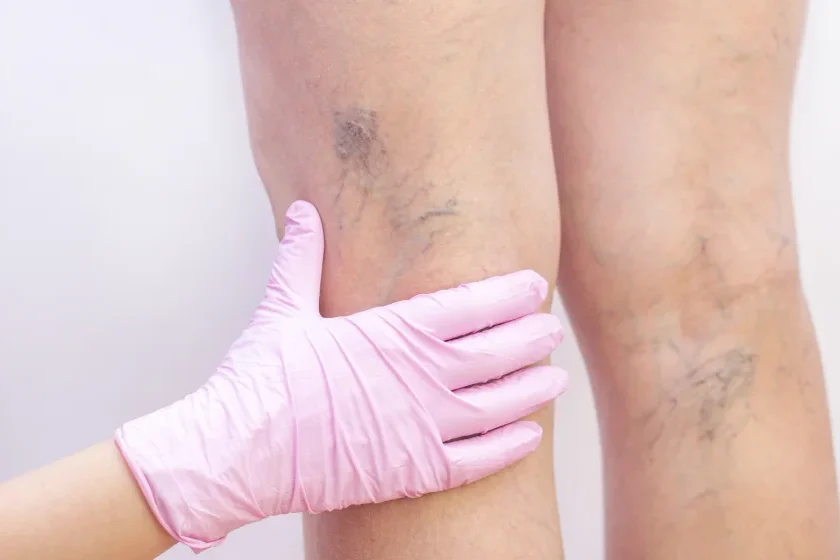
Best Home Remedies for Varicose Veins: Natural Ways to Ease Leg Pain
Doctors don’t want you to know this, but not all varicose veins require expensive treatments.
While medical interventions such as laser treatments and surgery are widely promoted, many people find relief through simple, natural remedies that improve circulation and ease discomfort. Varicose veins aren’t just a cosmetic concern; they can lead to pain, swelling, and long-term complications if left untreated.
The good news? A combination of lifestyle changes, dietary adjustments, and home treatments can help you manage symptoms effectively—without stepping foot into a clinic.
Let’s explore the best ways to relieve leg discomfort naturally.
Exercise and Movement
Exercise for Varicose Veins: Importance of Regular Movement for Blood Circulation
Poor circulation is a leading cause of varicose veins. When blood pools in the lower legs, veins become swollen and twisted. Regular physical activity is one of the best exercises for varicose veins as it helps improve circulation, strengthens vein walls, and prevents blood from stagnating.
Recommended Exercises:
- Walking – A low-impact activity that stimulates blood flow and strengthens calf muscles.
- Cycling – Encourages blood circulation and reduces pressure on veins.
- Yoga – Poses like “Legs Up the Wall” and gentle stretching improve venous return.
- Swimming – A full-body workout that relieves pressure from the legs while enhancing circulation.
Even light movement, like stretching or flexing your feet while sitting, can help keep blood flowing properly.
Elevating Your Legs
How Leg Elevation Helps Reduce Swelling
Lifting your legs above heart level allows gravity to assist blood flow back toward the heart, reducing swelling and discomfort. Try the following methods:
- Use pillows to elevate your legs while sleeping.
- Sit with your feet propped on a stool instead of letting them hang down.
- Take 15-minute breaks throughout the day to rest with elevated legs.
Performing these techniques daily can significantly ease the heaviness and swelling associated with varicose veins.
Compression Stockings
How Compression Stockings Work
Compression stockings provide graduated pressure, helping veins push blood upward more efficiently. They reduce swelling, prevent blood pooling, and alleviate discomfort.
Choosing the Right Compression Level:
- Mild compression (8-15 mmHg) – Suitable for minor swelling and tired legs.
- Moderate compression (15-20 mmHg) – Helps with mild varicose veins and prevents progression.
- Firm compression (20-30 mmHg) – Recommended for moderate to severe varicose veins.
It’s best to consult a vascular specialist before using high-compression stockings to ensure they are appropriate for your condition.
Healthy Diet and Hydration
Foods That Promote Vein Health
A balanced diet rich in antioxidants, fiber, and healthy fats can strengthen veins and improve circulation. Include:
- High-fiber foods: Whole grains, flaxseeds, chia seeds, and legumes prevent constipation, reducing pressure on veins.
- Vitamin C-rich foods: Citrus fruits, bell peppers, and strawberries support collagen production, strengthening vein walls.
- Leafy greens: Spinach, kale, and broccoli contain bioflavonoids that promote blood flow.
- Omega-3 fatty acids: Found in salmon, walnuts, and flaxseeds, these reduce inflammation and improve circulation.
Hydration and Vein Health
Dehydration can cause blood to thicken, increasing the risk of clot formation. Aim for 8-10 glasses of water per day, and include hydrating fruits like watermelon and cucumber.
Herbal Remedies & Essential Oils
Natural Herbs for Varicose Veins
Certain herbs have been traditionally used to support vein health and reduce symptoms:
- Horse Chestnut Extract: Contains aescin, which reduces swelling and strengthens veins.
- Butcher’s Broom: Improves circulation and relieves heaviness in the legs.
- Gotu Kola: Enhances blood flow and repairs damaged veins.
Essential Oils for Varicose Vein Relief
- Lavender oil Reduces pain and inflammation.
- Cypress oil: Improves circulation and relieves swelling.
- Peppermint oil: Provides a cooling effect that soothes leg discomfort.
Mix a few drops with carrier oil and gently massage onto affected areas.
Massage Therapy
Benefits of Gentle Massage for Varicose Veins
Massaging the legs can encourage blood flow and reduce swelling. However, avoid deep tissue massage directly on varicose veins, as excessive pressure may cause damage.
Safe Massage Techniques:
- Use upward strokes from feet to thighs.
- Apply gentle pressure with circular motions.
- Use a moisturizing oil to reduce friction and improve effectiveness.
Cold and Warm Compress
When to Use Cold vs. Warm Compresses
- Cold Compress: Reduces swelling and numbs pain. Use after long hours of standing.
- Warm Compress: Improves blood circulation and relieves stiffness. Ideal for morning discomfort.
Alternating between warm and cold compresses can provide better relief.
When to See a Specialist
While home remedies can help manage varicose veins, medical attention is necessary if you experience:
- Severe pain or swelling that worsens over time.
- Skin discoloration or open sores near the affected veins.
- Bleeding from varicose veins.
- Signs of deep vein thrombosis (DVT), such as redness, warmth, and sudden swelling in one leg.
Consulting a vascular surgeon in Vadodara can help determine the best treatment options, such as laser treatment for varicose veins or sclerotherapy for advanced cases.
Conclusion
Varicose veins can be uncomfortable, but natural remedies can help alleviate symptoms and prevent progression. By incorporating exercise for varicose veins, healthy diet choices, and simple home remedies, you can effectively manage symptoms and improve vein health.
However, if symptoms persist or worsen, seeking medical advice from a varicose vein specialist in Vadodara is recommended.
While home remedies are a great first step, they work best when combined with a proactive approach to vascular health. If you’re searching for a vein specialist doctor near me, Dr. Sumit Kapadia, a renowned vascular surgeon in Vadodara, offers expert treatments for varicose veins.
From minimally invasive procedures like sclerotherapy and laser therapy to expert advice on lifestyle management, his expertise can help you find lasting relief. Don’t wait—schedule a consultation today and take the first step toward healthier legs!
Frequently Asked Questions (FAQs)
Exercise, leg elevation, compression stockings, and a diet rich in fiber and antioxidants are effective home remedies.
Yes, low-impact exercises like walking, yoga, and swimming improve circulation and strengthen vein walls.
They provide graduated pressure to support blood flow and reduce swelling.
Horse chestnut extract, butcher’s broom, and gotu kola are known to improve circulation and vein health.
Leafy greens, citrus fruits, whole grains, and omega-3-rich foods promote strong, healthy veins.
Yes, elevating your legs above heart level reduces swelling and discomfort.
Oils like lavender, cypress, and peppermint improve circulation and reduce pain.
A gentle massage can be beneficial, but deep tissue pressure should be avoided to prevent damage.
If you experience severe pain, skin changes, bleeding, or symptoms of deep vein thrombosis, consult a vascular specialist immediately.

Dr. Sumit Kapadia
MBBS, MS, MRCS, DNB-Fellow



